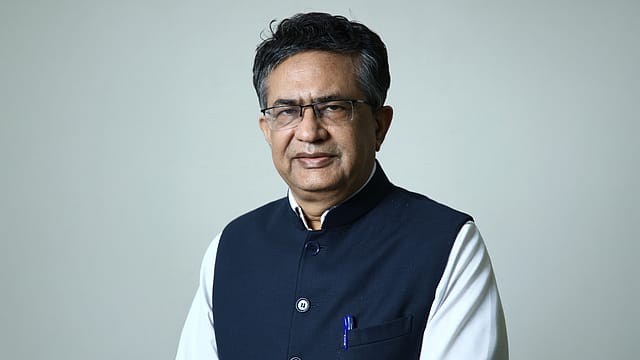F&O trading: NSE CEO Ashish Chauhan cautions retail investors against derivatives
ADVERTISEMENT

With retail investors increasingly burning their fingers in the equity derivatives market, NSE CEO and MD Ashish Chauhan has urged them to stay away, stressing that these complex instruments are not suited for most individuals.
“If you don’t fully understand how the instrument works, it’s best to avoid them. For retail investors in particular, derivatives are not the right space,” Chauhan said at an event in Delhi on September 24 to launch his book.
The Hindi edition of Sthitpragya, based on Chauhan’s life journey, was launched in Delhi on Wednesday.
Speaking at the event, Chauhan explained that futures and options (F&O) are primarily hedging tools, designed to manage risk in futures positions. “They are not inherently good or bad—their effectiveness depends on who uses them and how,” he said.
“Like any tool, options demand a degree of skill. Knowing how they work is not enough; you must have the capability to use them properly,” Chauhan noted.
“You need mechanisms to control them, and to ensure that only those with the training and judgment to handle complex instruments actually use them. Banning a product outright is an easy answer, but it ignores the nuance of who uses the tool and how,” he said.
The real solution lies in oversight and education. With proper training, clear rules, and accountability, options and other derivatives can do what they were designed to do, he added.
Capital markets regulator Sebi recently highlighted that nine out of 10 individual traders incur losses in the F&O segment. A comparative study of trading patterns between December 2024 and May 2025 revealed that individual traders lost ₹1.05 lakh crore in the equity derivatives segment (EDS), up 41% from ₹74,812 crore lost in FY24. The average loss per trader stood at ₹1.10 lakh, with 91% of individuals ending the year in the red—broadly unchanged from FY22–24.
To curb speculative spikes on expiry days and mitigate systemic risks, Sebi has introduced a series of reforms. These include the rationalisation of weekly and monthly index derivatives from November 2024, larger contract sizes, upfront collection of options premiums, and stricter monitoring of intraday position limits.
On the public listing of the NSE, Chauhan said that the process is expected to take place 8-9 months after receiving clearance from the markets regulator. "NSE had filed for settlement with Sebi in June 2025. Once the NOC (No-Objection Certificate) is received, the exchange will require 4-5 months to prepare its draft red herring prospectus (DRHP), followed by another 4-5 months for Sebi's review.”